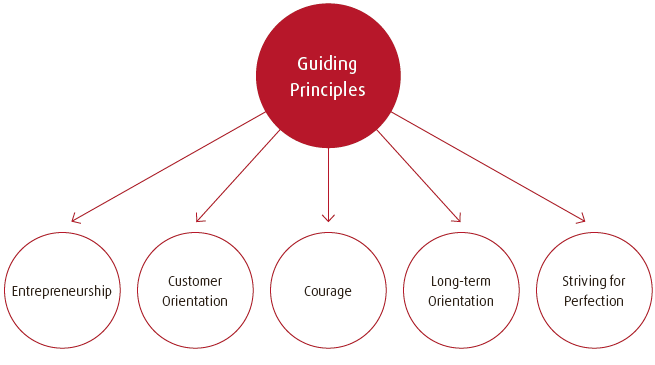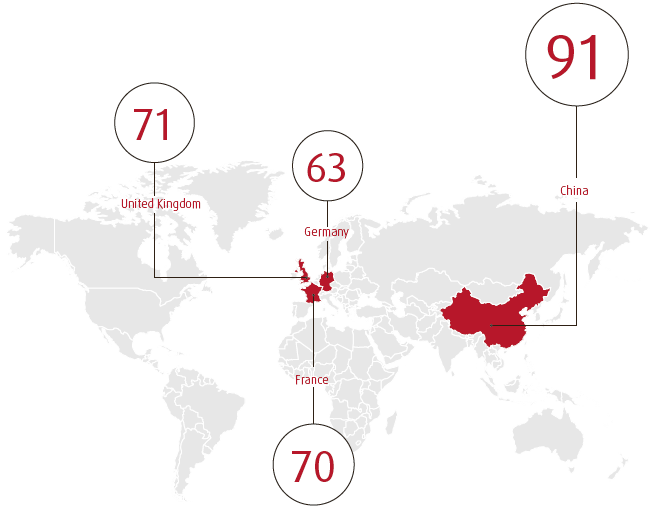Management and promotion
G4-26, G4-27Committed and capable employees combined with a strong corporate culture form the backbone of any company and are a key factor for economic success. Linde Material Handling promotes this approach through its own interpretation of good leadership and strategic instruments and projects.
The Linde concept of good leadership
The willingness and understanding of companies to change and learn depends significantly on management and leadership skills. More than 89% of all employees worldwide therefore regularly receive an assessment of their career development – e.g. through discussions with their supervisors. Linde Material Handling has also defined its own interpretation of good management. This is manifested in a management behaviour which actively supports employees in implementing the vision of the Company – through motivation, promotion and provision of the necessary resources. The basis of this interpretation is provided by the employee standards of Linde and the leadership principles based on these standards (see also chart above). The values anchored in these principles and the fundamental attitude informing the conduct of management at Linde is defined by a management guideline which also gives orientation and provides support for decision-making in situations that are not clear-cut.
Good leadership at Linde Material Handling

Leadership Goals
Our employees …
- know what is expected of them.
- receive regular feedback about their performance.
- are encouraged and supported to engage in continuous career development
- get recognised for good work.
- know why their job is important.
- have the tools and resources to perform their duties.
- address every challenge proactively: see it, own it, solve it.
- can openly voice their opinions.
Feedback, dialogue, improvements
The Company has to give committed employees the opportunity to contribute their ideas for improvements and innovations. In March 2014, Linde Material Handling launched an international staff survey for the first time as a broadly based instrument for feedback, dialogue and change. Three targets were linked with this tool: carrying out a survey to obtain feedback from employees on the Company and on the conduct of managers, initiating a dialogue on this basis and finally deriving concrete improvements for the employees’ own specific section. Linde regards this instrument as a major opportunity to secure the long-term success of the Company.
Company-wide staff survey
How do employees assess their present employment situation? What is currently good and what would have to be changed so that operations run even better? How can we work together to create a successful future? The staff survey comprising 79 questions defined these focuses. Employees from the four countries with the highest number of employees were able were able to take part in the survey: China, Germany, France and the United Kingdom.
This amounts to nearly 70% of the total workforce. 74% of the employees surveyed took this opportunity to provide feedback – an above-average result for first surveys. 77% of those surveyed responded that they were satisfied with Linde Material Handling as an employer. 75% of employees also confirmed that the actions of the executive management are based on the ethical principles of the company.
The staff survey highlights the fact that cultural differences frequently lead to varying assessments for questions and even to assessment of the results – this applies to the individual country companies and for specific areas. For example, employees in production evaluate specific aspects differently from employees in sales. The results were therefore processed in the same country and in the same functional area so as to be able to draw comparable conclusions.
First international staff survey – participation rate
Participation in %

Launch for dialogue
In June 2014, all managers received result reports on their individual areas of responsibility. A total of some 280 reports were generated and a similar number of discussions were held in the departments. The objective has been clearly defined: Working together with the workforce to crystallise the key findings, assess them and define measures that will contribute to improvements in the immediate surroundings. These feedback dialogues were also held at the executive management levels of all the countries involved and on a global level.
